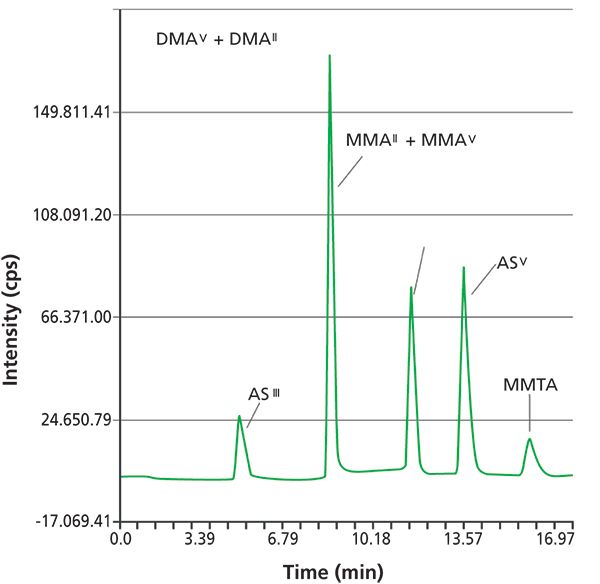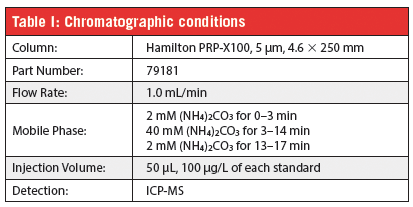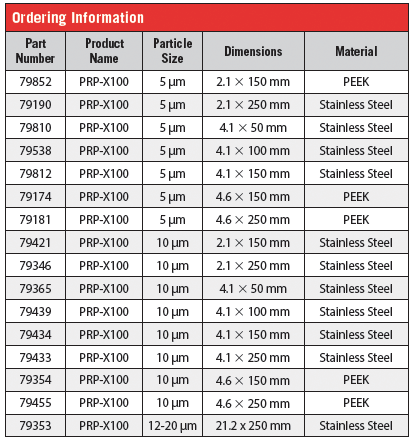Arsenic Speciation on Hamilton PRP-X100
The Application Notebook
Organic arsenic compounds added to feed stocks of chicken and poultry pose serious environmental and ecological threats. National and worldwide health organizations, such as the United States Environmental Protection Agency and the US Food and Drug Administration, have recently implemented more stringent concentration limits for arsenic species in drinking water and foodstuffs.
Organic arsenic compounds added to feed stocks of chicken and poultry pose serious environmental and ecological threats. National and worldwide health organizations, such as the United States Environmental Protection Agency and the US Food and Drug Administration, have recently implemented more stringent concentration limits for arsenic species in drinking water and foodstuffs.

Figure 1: Borrowed and adapted (with permission) from P. Alava et al., Biomed. Chromatogr. 26, 524-533 (2012).
Analysis of arsenic species is made challenging due to diverse sample matrices. To circumvent these problems, an HPLC ICP-MS method has been developed. Resolution of arsenic compounds is achieved by ion exchange chromatography on a Hamilton PRP-X100 column, a 55% cross-linked polystyrene-divinylbenzene copolymer functionalized with quaternary ammonium anion-exchanger group. Detection is accomplished by inductively coupled plasma-mass spectrometry.



Hamilton Company
4970 Energy Way, Reno, NV 89502
tel. (775) 858-3000, (800) 648-5950
Website: www.hamiltoncompany.com


.png&w=3840&q=75)

.png&w=3840&q=75)



.png&w=3840&q=75)



.png&w=3840&q=75)














